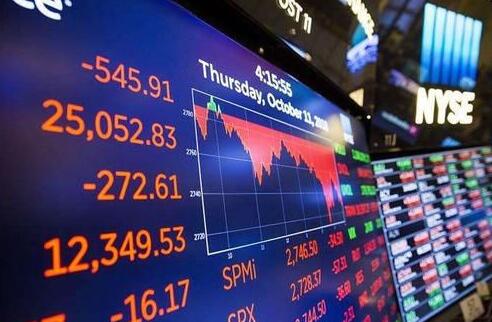U.S. retail stocks will face a backlash after their arrogant and soaring rise?

U.S. retail stocks are one of the sectors with the strongest trend this week. Strong retail sales data superimposed on the beautiful performance of major retailers, together supporting the buying interest on Wall Street.
On the one hand, U.S. retail sales in October increased by 1.7%, surpassing the 1.5% previously estimated by economists. The consumer market in the current quarter is still encouraging investors.
On the other hand, it seems that the supply chain crisis, soaring costs, and inflation concerns have not endangered the giants in this industry. The extensive logistics system and scale effect seem to help them maintain their pricing power and survive this "perfect storm". ". US retail giants such as Wal-Mart (NYSE: WMT), Home Depot (NYSE: HD), Macy’s (NYSE: M) and Kohl’s (NYSE: KSS) have all exceeded market expectations. On Thursday, Macy’s Department stores even soared 21.1%, their biggest one-day gain in decades, led by the S&P 500 consumer discretionary sector, which rose 1.5%.
The good news is that as the consumer market continues to be strong, retailers’ balance sheets have improved significantly. David Berman, portfolio manager of investment agency Durban Capital, pointed out that consumers have enough cash, plenty of job opportunities, and strong demand. Retailers currently have fewer stores, so there is a more rational environment. Regarding supply chain issues, David Berman believes that retailers have pricing power and can pass on the impact of rising labor and raw material costs, so gross profit margins should remain strong, as is the case with Home Depot.
However, investors still should not take retail stocks lightly, and the following risks have to be guarded against.
First of all, the US retail market is about to enter the peak sales season at the end of the year, and the first to bear the brunt is the first shopping festival "Black Friday" after Thanksgiving. Joe Feldman, senior managing director of the investment firm Telsey Group, pointed out that this year’s Black Friday sales may tend to slow down, and there will be no large-scale promotional activities like the previous year, because consumers are abundant in cash and inventory is not so abundant. In this case, you can’t expect retailers to actively promote sales. This may be good news for retailers, but consumers may not be used to it. The analyst said that recently many retailers are selling goods at full prices to offset the impact of rising costs.
Second, the market is currently worried that with the arrival of the post-epidemic era and the gradual restart of the economy, the US government's stimulus policies in the retail sector will weaken, which has been a vital source of funds before.
Moreover, the steady rise in prices is still an issue that cannot be ignored. The President of the Federal Reserve Bank of New York, Williams, said on Thursday that inflation in the United States has become more widespread and expectations for future price increases are rising. Policymakers will pay close attention to this. A trend. In the future, this will undoubtedly pose a threat to the profit margin of the company. When retailers raise the price to a certain level, they will suffer backlash. Joe Feldman also pointed out that there is only so much pressure on prices that consumers can withstand. If they continue to rise, consumers will inevitably counterattack.
Finally, investors also need to pay attention to the repurchase trends of retail companies. Generally speaking, we would think that when retailers get a lot of cash, they will inevitably return to shareholders by way of repurchase. However, market analysts also call the massive repurchase of stocks a "repurchase monster", because as a result of this, after years of repurchases, the number of outstanding shares will decrease, which will make the retailer’s earnings per share look substantial. Increase, but in many cases, the increase in income may not be large, or even no increase at all. For example, Kohl's has very strong earnings this quarter, but sales are actually the same as in 2016.
Some analysts strongly disagree with this approach. They even hope that retailers can use the cash to invest heavily in e-commerce infrastructure or supply chain construction. For example, Wal-Mart’s capital expenditure so far this year has reached 13 billion U.S. dollars. David Berman, a portfolio manager at Durban Capital, said, "I don't like them buying back stocks. I would rather they increase dividends."
The new crown epidemic has indeed interrupted the pace of many companies repurchasing stocks, but now they have begun to recover. For example, TJX (NYSE: TJX) repurchased 300 million US dollars of stock in the second quarter. In addition, Kohl Department Store has been repurchasing stock from the first quarter of 2010 to the first quarter of 2020, although in February 2020 -There was a suspension in the third quarter, but it resumed again in the first quarter of 2021.



